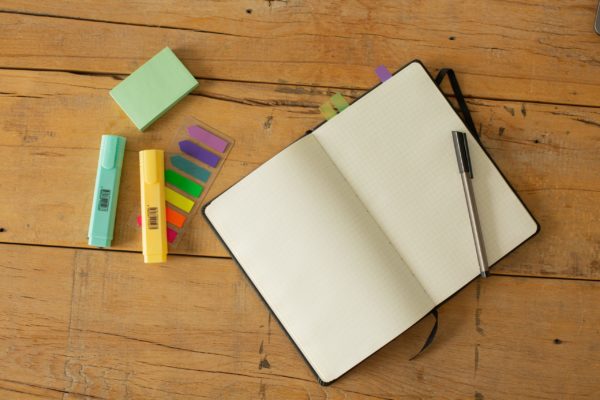Did you know that German is spoken by more than 100 million people in Europe? In fact, it is the most widely spoken language in the European Union. What’s more, it’s also a pluricentric language … What does that mean? It’s quite simple: a pluricentric language is one that has not just one standard form, but several forms all comparable in terms of use and validity. In this post, we want to offer you a quick introduction to some of the most common German vocabulary to help you make yourself understood on that trip you’ve been planning.
How do I start learning the most basic German vocabulary?
One of the most important things to bear in mind is that there’s no point in repeating the same German vocabulary for hours and then, after the class ends, never revising it. To properly retain what you’ve learnt, a good trick is to learn a few words a day (20-25) and apply them in your daily life whenever you can.
The more you familiarize yourself with these words, the better you’ll remember them and the easier it will be to apply them spontaneously when you need to. Another of the best tricks and tips for learning German is to read in the language (though you may find it hard to begin with and struggle to understand anything, little by little you’ll notice yourself becoming more fluent), watch films and TV series, and practice with someone who knows how to speak it.
Now it’s time to show you a few of the most common everyday terms. For this, we’ll be focusing on vocabulary that might just come in handy in your everyday life and on holiday – to use in restaurants and hotels, for example. Let’s get started.

Numbers in German
The most basic aspect of learning any language is, of course, numbers. Knowing how to count is essential in various situations – like in the supermarket, for example. Take a look at the list below to discover the most common numbers:
- 1: eins.
- 2: zwei.
- 3: drei.
- 4: vier.
- 5: fünf.
- 6: sechs.
- 7: sieben.
- 8: acht.
- 9: neun.
- 10: zehn.
- 11: elf.
- 12: zwölf.
- 13: dreizehn.
- 14: vierzehn.
- 15: fünfzehn.
- 16: sechzehn.
- 17: siebzehn.
- 18: achtzehn.
- 19: neunzehn.
- 20: zwanzig.
- 21: einundzwanzig.
- 22: zweiundzwanzig.
- 23: dreiundzwanzig.
- 30: dreißig.
- 40: vierzig.
- 50: fünfzig.
- 60: sechzig.
- 70: siebzig.
- 80: achtzig.
- 90: neunzig.
- 100: hundert.
As we mentioned earlier, numbers are something you will use every day, for one reason or another – as a result, we’re sure that revising this list will really come in handy during your next trip to Germany.
Polite expressions
Next, we’re going to show you the most common German greetings to help you engage in a short and polite conversation:
- “Guten Morgen” – Good morning
- “Wie geht es lhnen?” – How are you? (formal)
- “Hallo” – Hello
- “Wie geht es dir?” – How are you? (informal)
- “Bitte” – Please
- “Sehr gut, danke” – Very well, thank you
- “Bis bald” – See you soon
- “Auf Wiedersehen” – Goodbye
German vocabulary to express yourself
The next table is for all those situations in which you need to make yourself understood and explain that you are not fully fluent in the language, or that you’re struggling to understand what has been said:
- “Sprechen Sie Englisch?” – Do you speak English?
- “Ich spreche kein (nicht gut) Deutsch” – I don’t speak German (well).
- “Ich spreche ein bisschen Deutsch” – I speak a little German.
- “Ich verstehe nicht” – I don’t understnad.
- “Ich lerne Deutsch” – I am learning German.
- “Langsamer, bitte” – Slower, please.
- “Wie spricht man dieses Wort aus?” – How do you pronounce this word?
If you visit a restaurant during your stay
Whether you’re going away for a few days or planning to spend several months abroad for work or any other reason, you’re bound to want to head out to a restaurant at some point. If you don’t have a clue what to say in this situation, you might feel quite uncomfortable – that’s why we’ve put together this list of the most common expressions to make yourself perfectly understood:
- “Zum hier Essen oder zum Mitnehmen” – To sit in or take away
- “die Speisekarte” – The menu
- “das Frühstück” – Breakfast
- “das Glas”- The glass
- “der Teller” – The plate
- “das Mittagessen” – Lunch
- “das Abendbrot, das Abendessen” – Dinner
- “Was möchten Sie gerne essen?” – What would you like to eat?
- “Die Rechnung, bitte” – The bill, please
- “das Trinkgeld”- The tip.
In the home
This aspect is particularly important to get to grips with, as these countries place great emphasis on life at home, making this field of vocabulary an absolute must:
- “das Wohnzimmer” – The living room
- “die Toilette” – The toilet
- “das Badezimmer” – The bathroom
- “die Garage”- The garage
- “das Büro” – The study
- “die Küche” – The kitchen
- “das Schlafzimmer” – The bedroom
As you can see, this is just a short list of words to get you started – but they’re likely to be the ones you use most throughout the day. With these, you’ll obtain a basic understanding of German vocabulary, making it much easier to communicate. We at Blarlo encourage you to keep learning and practicing, whenever possible, to further broaden your vocabulary and reach a good level of fluency. Don’t keep putting it off – start practicing with us today, it’s much easier than you might think!






